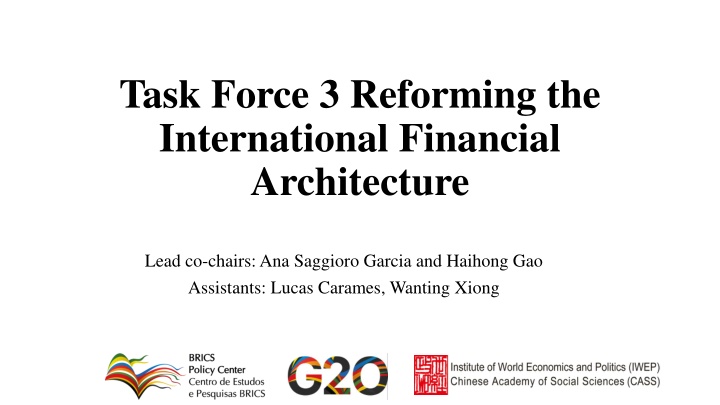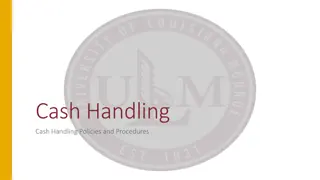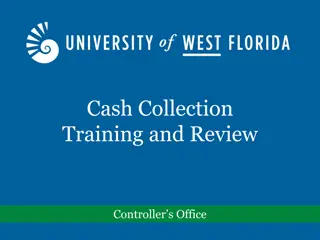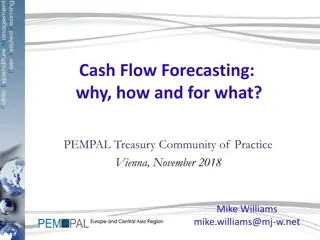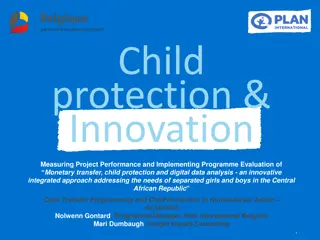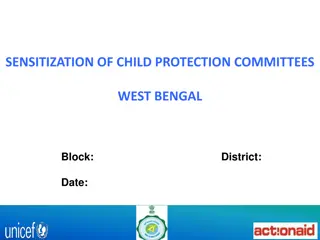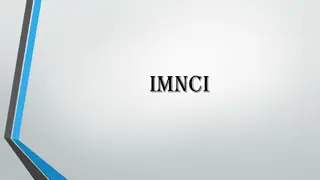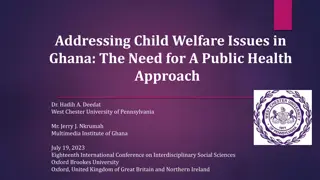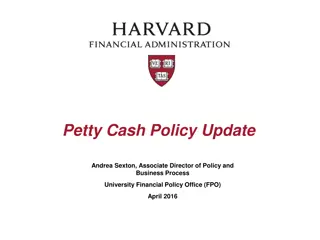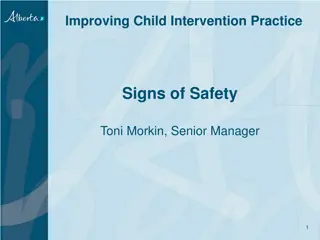Innovative Approach to Child Protection & Cash Transfer Programming
This project in the Central African Republic integrates cash transfer, child protection, and digital data analysis to address the needs of separated girls and boys. It includes services like case management, referral, psychosocial support, and life skills training. The innovative approach combines cash transfers with traditional child protection methods, focusing on strengthening the resilience of children and families and preventing family separation.
Download Presentation

Please find below an Image/Link to download the presentation.
The content on the website is provided AS IS for your information and personal use only. It may not be sold, licensed, or shared on other websites without obtaining consent from the author.If you encounter any issues during the download, it is possible that the publisher has removed the file from their server.
You are allowed to download the files provided on this website for personal or commercial use, subject to the condition that they are used lawfully. All files are the property of their respective owners.
The content on the website is provided AS IS for your information and personal use only. It may not be sold, licensed, or shared on other websites without obtaining consent from the author.
E N D
Presentation Transcript
Task Force 3 Reforming the International Financial Architecture Lead co-chairs: Ana Saggioro Garcia and Haihong Gao Assistants: Lucas Carames, Wanting Xiong
Statistical Summary # of received policy briefs by Task Force 58 % of accepted policy briefs by TF % of rejected policy briefs by TF # of merged policy briefs by TF Subtopic with the most briefs submitted 46/58 79% 7/58 12% 5 2 3.1 (15) and 3.3 (15) # of received policy briefs by subtopic % of accepted policy briefs by subtopic # of merged policy briefs by subtopic 3.1 15; 3.2 11; 3.3 15; 3.4 9; 3.5 8 3.1 87%; 3.2 100%; 3.3 73%; 3.4 56%; 3.5 75% 3.1 0; 3.2 0; 3.3 3; 3.4 2; 3.5 0 % of rejected policy briefs by subtopic 3.1 13%; 3.2 0%; 3.3 13%; 3.4 22%; 3.5 25%
Subtopic 1 Financial Rules and GFSN The current IFA faces challenges including unequal access to crisis financing among states, procyclical lending policies, financial exclusion in CBDC development, inadequate integration of ESG risks, and an outdated quota system. Key recommendations: 1. Strengthening the Global Financial Safety Net (GFSN) 2. Fostering Coordinated Development of CBDCs 3. Reforming IMF Lending Policies. 4. Greening Financial Regulations 5. Reforming the IMF s Quota Systems for a Fairer Global Financial Order
Subtopic 2 MDBs Reform Emerging markets and developing countries are facing a growing need to scale up finance to deal with high borrowing costs, debt service burden, the persecution of SDGs, climate mitigation, and adaptation. MDBs should play a leading role in solving such issues providing financial support, advisory, research, and capacity building. Key recommendations: 1. Foster innovation in sustainability-linked sovereign financing 2. Incentivize regional and subregional MDBs to strategic expansion 3. Reallocate SDRs to African Financial Institutions 4. Enhance Local Currency Lending by MDBs 5. Ending fossil fuel support and stepping up support for clean energy technologies 6. Establish an economic vulnerability index as part of MDBs resource allocation 7. Adopt the concept of Sustainable Future Bonds incorporating Sovereign Wealth Funds 8. Comprehensive reform of MDBs to enable their potential as Global Public Goods providers
Subtopic 3 Debt Issues in Developing Countries Developing countries are grappling with unsustainable debt amidst a backdrop of health crises, climate change, geopolitical tensions, rising interest rates, and diversifying creditor structure. Key recommendations: 1. Reforming the G20 Common Framework 2. Incentivizing Private-Sector Participation 3. Linking Debt Resolution to Other SDGs 4. Enhancing Debt Governance Capacity 5. Facilitating the Upgrading of the Global Debt Architecture
Subtopic 4 Global Tax Architecture Cross-border profit shifting, intensified tax competition between countries, and the impact of globalization and digitalization are eroding the revenue accruing to many countries. Effective international tax cooperation can provide much needed revenues to countries to fight hunger, poverty, and inequality. Limits of the OECD proposal. Key recommendations: 1. Introduction of a multilateral convention on taxing high-seas economic activity 2. Concerted initiative to build on the work previously propelled by the G20 for a more comprehensive reform of MNE taxation 3. Drive the agenda of DSTs in the Global South 4. Improve Tax Expenditures reporting 5. Reassess the role G20 has historically played in reinforcing North-South inequalities in taxation 6. Drive support for a fully rights-aligned UN Tax convention 7. Ensure inclusive dialogue in international tax cooperation at the UN
Subtopic 5 Financing for SDGs There is a significant financing gap for developing countries to achieve SDGs by 2030 ($5.4 trillion per year). A major revamp and expansion of finance following a strategy that aligns all finance to sustainability from a comprehensive and holistic approach is needed. Key recommendations: 1. Acknowledge the importance of combating climate change, endorse the Guiding Principles for Financing Climate and Health Solutions, and embed health into the broader G20 climate finance initiatives. 2. Rechanneling SDRs to support innovative financing mechanisms that accelerate climate action and promote economic resilience 3. Unlock private capital forAfrican Low-income countries 4. Support African economies to develop their own internal solutions for self-reliance and financial resilience 5. Reform the role of MDBs and scale up debt solutions to foster a global nature positive economy
Observations in PB reviewing process 1. Lack of focus on recommendation for G20 in some PBs with good insights These PBs are accepted with modification Maybe more highlights for authors on the importance of connecting with the G20 in the very beginning and during the process 2. Need for a standardized way of sending feedback to PB authors Auniversal template for acceptance, rejection, and merge The requirement of Chicago reference style can be indicated in the very beginning
Connections With Sherpa IN on Global Governance Reform Disaster Risk Reduction WG; Energy Transition WG; Environment and Climate Sustainability WG; Development WG; Trade and Investment WG; TF on Global Alliance Against Hunger and Poverty With the Finance Track Work Program for International Taxation International Financial Architecture WG; Sustainable Finance WG; Framework WG (Navigating Economic Divergence and Growth Threats); Infrastructure WG (Sustainable and Inclusive); With the Focus of Brazil s G20 presidency Global Tax Reform; Roadmap of MDB; Debt for Health (Not Enough) With Civil 20 Convergence Meeting on May 3rd, WG 1
Thanks! Ana Saggioro Garcia: Garcia anasaggioro@gmail.com Haihong Gao: gao_haihong@outlook.com Lucas Carames: lucasacarames@gmail.com Wanting Xiong: wanting_xiong@sina.com
